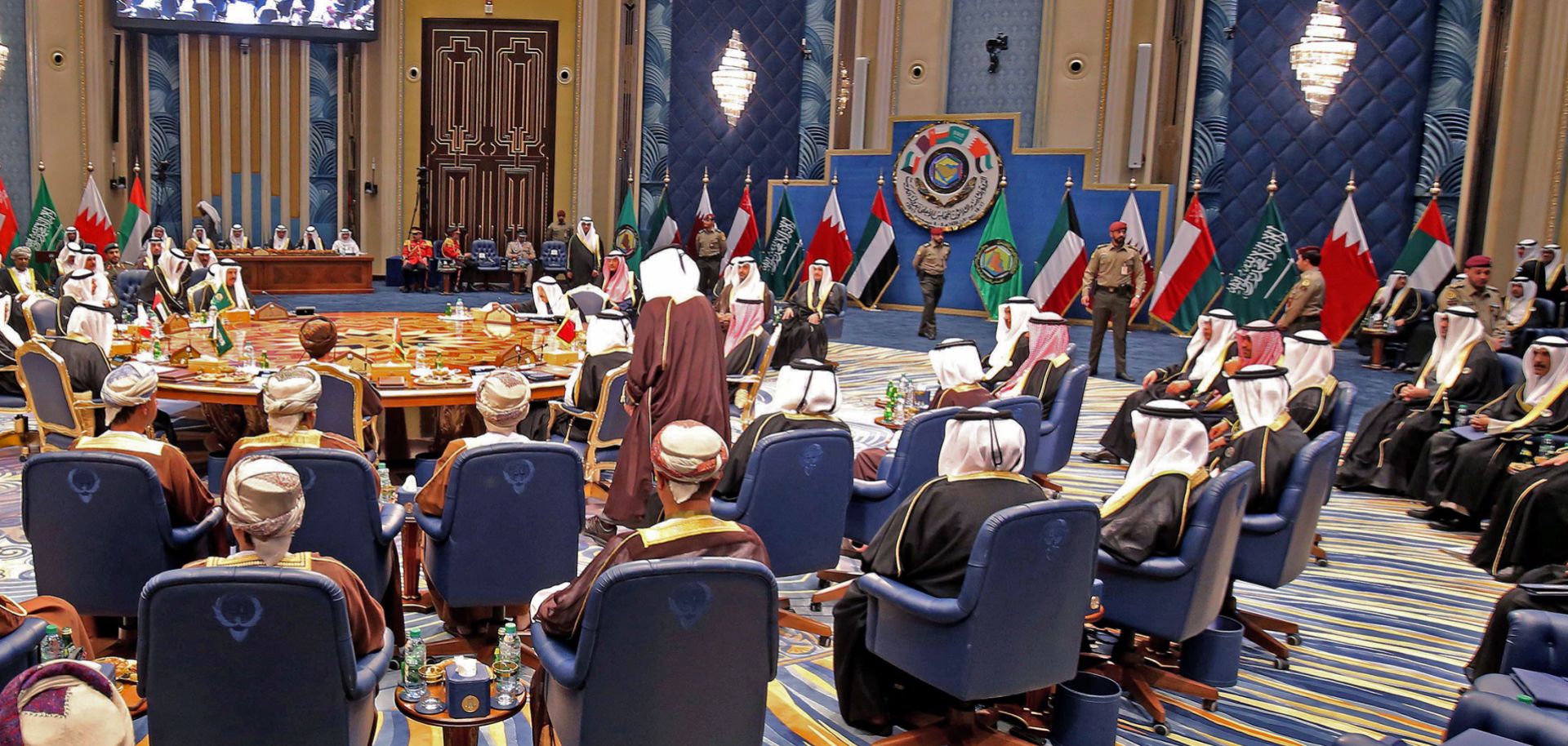ASSESSMENTS
Kuwait Shifts the Burden of Reforms Onto Expatriates
Jan 14, 2019 | 12:00 GMT

Gulf Cooperation Council leaders meet in Kuwait City on Dec. 5, 2017. Like other GCC member states, Kuwait is confronting, and grappling with, the need to diversify its oil-based economy.
(YASSER AL-ZAYYAT/AFP/Getty Images)
Highlights
- Although Kuwait's government remains committed to diversifying the country's economy and implementing structural reforms, Kuwait is likely to drag out its timeline on change since its significant wealth reduces the urgency of implementing tough measures.
- Because Kuwait's comparatively powerful parliament opposes difficult austerity measures, the government is likely to place the onus of economically painful reform on foreign workers in the country.
- The government will have no choice but to find the right balance between burdening expatriates and continuing to court the most talented foreigners.
- Given that Kuwaitis tend to gravitate toward public sector employment, the government will find it difficult to persuade nationals to accept jobs in the more demanding private sector.
Subscribe Now
SubscribeAlready have an account?
